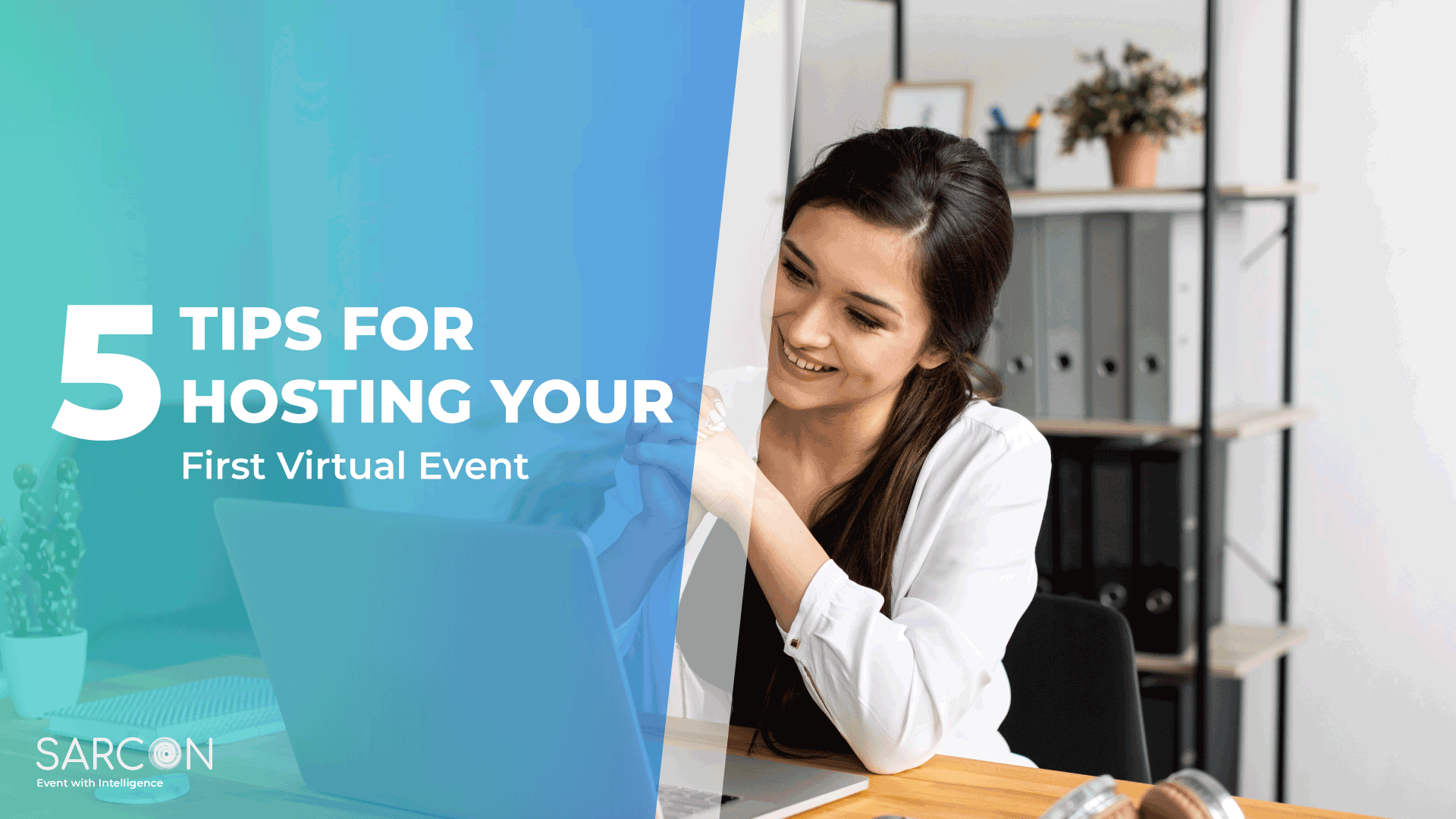Despite the COVID-19 pandemic, interest in virtual events has grown recently. As a matter of fact, the business benefits of virtual events were evident well before the year 2020. The business world’s need to replicate meetings and events online caused a significant acceleration in their popularity. Not only did virtual events make work conferences possible, but they also opened avenues for organisations to reduce their carbon footprint. What was once perceived as an alternative is now seen by many as a mandatory virtual need.
Virtual events are an effective way for businesses to connect with a global audience, whether it’s a trade show, live discussion, or even a small business meeting. Companies can now organize their gatherings using a do-it-yourself approach thanks to feature-rich virtual event platforms.
So, how do you get started in organizing your first virtual event?
An online event requires the same knowledge of goals, attention to detail, and marketing prowess as an in-person event. Without a defined purpose, it will be difficult to determine the event’s target audience, objectives, and overall message.
Each of these goals will require a different strategy and set of objectives. For example, if the event’s goal is to generate leads, then the objective might be to capture contact information from attendees. If the goal is to increase brand awareness, the objective could be getting as many people to attend the event as possible.
Once you have a clear goal for the event, it will be much easier to determine other details, such as the target audience, objectives, and overall message. While it may seem challenging, these handy tips make organizing your first event a breeze.
Here are five tips to consider getting started:
1. Figure out your audience
It would be best if you understand your audience’s general psyche. Well, Are they more inclined to partake in virtual events? How tech-savvy are they? Here are some questions to help you build a robust demographic profile.
- What subject areas in your industry are they most interested in?
- How familiar or active are they with primary social media?
- What types of offers do they respond best to?
- Send out surveys or start a discussion forum to acquire answers from your audience. It doesn’t matter how you do it as long as you get the information.
- What level of interaction would you like?
Read More: 5 Email Marketing Tips: Increase your virtual event turnout.
There’s much more to virtual event planning than defining timelines and budgets; you also want to attract, excite, and engage attendees. Decide if you wish to have textual, voice, or video chat-based functionality and 3D and 360-degree visual scapes. You can also opt for more engagement options like Live Q&As and other features like Social Walls.
2. Consider mobile and tablet users
Most virtual event traffic comes through smartphones, making it vital for your event to be easily accessible through smartphones and tablets. Select a vendor that is offering a mobile-ready and feature-rich platform. Remember that virtual attendees will likely lose interest or get distracted and leave if the event isn’t engaging enough (or the overall design and interactivity are lacking). So choose a platform that can accommodate these users and, more importantly, provide a design that doesn’t compromise quality when viewed on smartphones.
3. Select a vendor with reliable offerings and direct client support
It is vital to select a virtual event platform by looking through all the features and capabilities that are important to you. Virtual events are highly customizable, so you don’t want a vendor that will provide a pre-made package with features you don’t need and spend extra. Ideally, you should have flexibility across the multiple phases of the event. Look at event layout, marketing features, design customization, mobile-friendliness, analytics, and ticketing systems.
Did You Know: 78% of businesses that use an event application say it contributes to a positive event ROI. (Source)
Also, look at the client’s dedicated support to help with the entire process; this could make or break your event. A platform like Sarcon allows for unlimited finetuning by the user and offers direct support and features to help organizers plan and execute end-to-end.
4. Choose the right vendor with the right experience
With so many new platforms in the industry, it is essential to look at vendors who have worked with various organizations. Versatility in event types and scale should be considered when choosing a vendor.
Read more: 5 Creative Virtual Event Content Ideas.
Sarcon has worked with customers such as HP, Xiaomi, the Government of Singapore, Diabetes Association of America, and other leading organizations within their industry for events ranging in size and scale. From trade shows and networking events to wedding fairs and awards shows, Sarcon provides a DIY, highly customizable platform for various events that works for any kind of customer.
5. Find the virtual event platform that measures your success
Planning the first event can be daunting, but choosing a vendor with a robust and dynamic platform to support any event, regardless of scale or budget, will enable your success. While the vendor may provide an excellent virtual event, the impact and results of the event equally matter. Learning from the event’s success is vital to figuring out the ROI, and a vendor that allows you to manage and oversee all aspects of the event should be considered in your decision-making. Furthermore, a platform with reporting capabilities to measure success is also important.
For example, a vendor like Sarcon that will enable users to easily track and determine KPIs, visitors, and booth interactions down to the most granular level of detail will hold the key to a successful event.
By considering all of these factors, you can be sure to find a virtual event vendor that will help make your next event a success!
Learn how you can organize your first event for maximum success.



